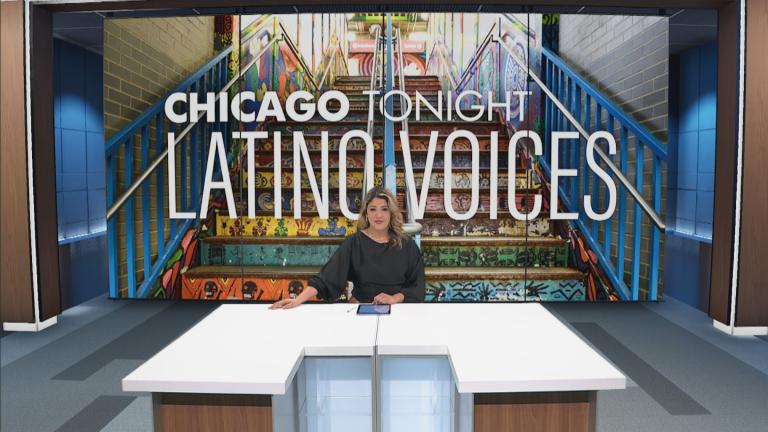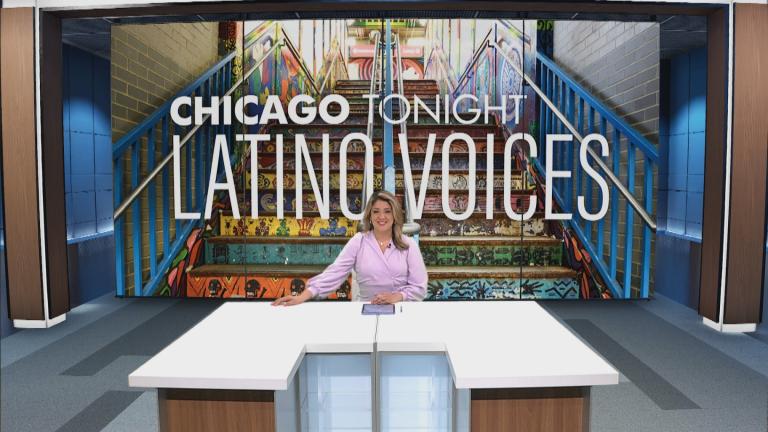As Russian forces invaded Ukraine, more than 2 million Ukrainians fled their homes and sought refuge in neighboring countries, and many of them were greeted with warmth and generosity. But people fleeing conflict or disaster in other countries have not always been welcomed with such open arms in Europe or even here in the United States.
At the southern border, thousands of migrants seeking refuge from desperate situations in the Caribbean and South and Central America wait in camps. Many have even been turned back to the very countries they were hoping to escape.
Daysi Funes, executive director of Centro Romero, came to Chicago as a refugee of El Salvador’s civil war in 1980. She said the reception she received upon arriving in the U.S. was not always one of support.
“When I came here to the United States looking for asylum, leaving my home country because of the conditions in 1980 … my family, my friends, but also my best friends [were] killed and dead,” said Funes. “There were no benefits for El Salvadorans because it was a conflict where [the U.S.] was very well involved in that war. So they never recognized us as refugees from El Salvador. We never received the benefit of receiving any help, any support. That’s how [Centro Romero] began, to help those that came in that moment.”
Funes clarified the distinctions between refugees and other categories of migrants.
“Refugees are coming for conditions that are out of their control. For example, somebody who is a refugee because … they are looking for a safe haven where they can be protected. They have to qualify and prove they are refugees. Now immigrants, they come for different situations … mostly economic, to improve their lives and have a better future for their families and their kids.”
And the terms we use to describe people crossing countries make a difference in how they’re received globally, said Win Without War executive director Sara Haghdoosti.
“In this conflict it’s been really interesting to see some of the different terms used. I know that in a lot of the coverage I’ve seen when we talk about Ukrainian refugees, they’re described as refugees. And more importantly, they’re described as people who at times many will say look like us,” said Haghdoosti. “Whereas in other cases, we not only don’t hear those words, we hear people described in really dehumanizing ways they’re referred to as “waves,” they’re referred to as “illegals,” they are referred to as “aliens.” And I think it’s really important for us to remember that no matter what people are fleeing from, no matter what circumstances are, people are asking for help and when they are, they deserve to be treated with dignity and compassion.”
Every conflict that causes people to flee their home country is different. Maria Klimchak, herself a refugee from Ukraine, said though there are cultural connections between Ukraine and European countries, Europe has immediately welcomed Ukrainians primarily because they have a clear and obvious aggressor in Russia.
NATO and all European countries, they don’t want to have Russia as a neighbor. This is why they all are together to help Ukraine,” Klimchak said. “Not because Ukrainians are a special nation. This is not a civil war, it’s not a conflict. It’s a humanitarian crisis in Europe.”
That distinction in the nature of the conflict is an important one, said Fasika Alem, program director of United African Organization.
“For a lot of the refugees and asylum seekers that are fleeing from the global south, it’s not quite as easy to identify the aggressor,” said Alem. “In many cases the conflicts are internal. You’re talking about civil war, you’re talking about a decline in the political stability that creates unsafe conditions for those that live in those countries. So it makes it difficult to identify who the aggressor is. And there might even sometimes be the perception that it is their own doing, when it’s internal versus when you have an external aggressor.”
Alem pointed to one action the U.S. could take immediately that would bring the country’s treatment of Cameroonian refugees in alignment with its actions on Ukrainian refugees.
“Cameroon has been engulfed in internal conflict as well as external threats in the region that have really made it difficult for Cameroonians to return,” Alem said. “The first thing that comes to mind is a designation of [temporary protected status] for Cameroon, that we feel the administration has been really delaying and hesitating to do, even though all the evidence points to the need for that.”
Media coverage of the invasion has been under closer scrutiny than ever before, as social media called out comments made by some journalists drawing questionable distinctions between Ukrainian refugees and refugees from other countries. But this time, the media has the opportunity to examine how its own rhetoric is contributing to public perception, said Laura Washington, columnist for the Chicago Sun-Times.
“The media obviously plays a major role in this. And we as journalists need to be very conscious of how we use terminology and words and the impact that they have,” said Washington. “There’s been a lot of discussions in newsrooms, particularly since the George Floyd conversation emerged, about terminology and about how we label people and the dehumanizing impact it can have when you use terms like ‘refugees’ and ‘undocumented’ and when you’re not sensitive enough to entire groups of people and some of the racist undertones that are developed there.”
“You’ve got to think about who’s telling those stories, who’s behind those cameras and who’s using those words,” Washington continued. “The more diversity you can bring into the media, the more voices you can bring, the more sensitivity comes along.”








